
6 minute read
HEALTHIER LIFESTYLES
from RN - 8 July 2022
HEALTHY CHOICES
Get a handle on this healthy opportunity
With manufacturers pushing products that support healthier lifestyles, Charles Smith finds out what retailers need to know about the category and how they can generate healthy sales
The number of health-conscious consumers is rising. Lumina Intelligence’s convenience channel data shows 46% of convenience store shoppers are trying to make healthier snacking choices. With high fat, sugar and salt (HFSS) regulation looming large, it seems suppliers are also looking to the ‘healthier’ opportunity for salvation.
Allison Wallentin, convenience category manager at Saputo Dairy UK, is evangelical. “The well-being lens is widening and health needs are fragmenting – what ‘healthy’ means for one person may not be the same for another,” she says. “There’s no no one-size-fits-all solution – it’s about offering quality ‘healthier’ products at the right price, supported by the right messaging.” persuading. For Amit Puntambekar at Ash’s Shop in Fenstanton, Cambridgeshire, the available products present a challenge.
“When I was looking for lower fat, higher protein snacks, I looked at ready packaged food,” he says. “Health bars are loaded with sugar. Checking the calorie and fat content of them, if I want a heathy snack, I’ll get some ham or chicken.” Puntambekar’s other concern is his profit on return. “We make more per metre from crisps than things like protein snacks. People make conscious decisions to convert to low alcohol and the rest. They need to be inspired.”
Hitesh Modi, from Londis BWS in Chesham, Buckinghamshire, feels similarly that demand has not reached a point where he can dedicate much space to these products.
“We don’t sell much in the way of healthier products here. It isn’t the economy, we didn’t do that much before. The problem is, retail space is valuable: every inch needs to perform,” he says. “To push all this, suppliers need to come up with a marketing plan. Retailers want stock on sale or return, and product samples in store, making customers aware what’s there. When Mondelez International visit, they leave free stock and PoS. We need more people to do that.”
WHERE HEALTHY GROWTH CAN BE FOUND Even if Puntambekar and Modi are unconvinced, there are clear signs of a ‘climate change’ across the categories. Changing consumer habits after the lockdowns, coupled with the impending HFSS restrictions, has seen a renewed focus on health.
Puntambekar might make more money per metre from crisps than protein snacks, but snacking is a leading category in the HFSS regulators’ sights, and ‘better for you’ snacking is predicted to grow from £381m now to around £420m by
SUPPLIER VIEWPOINT
Allison Wallentin
Convenience category manager, Saputo Dairy UK
• Site healthier alternatives within their home category, so as not to make shoppers feel marginalised for their dietary choices.
• Stock top-selling lines with brand names consumers know and love.
Capitalise on healthy impulse purchasing by placing healthier snacks towards the end of shopper’s trips or front of store, alongside other food-to-go products.
• Offer ‘better for you’ meal deals to make healthier choices easy, and give shoppers the freedom to choose, creating ‘pick n mix’ ‘healthy’ lunch options for shoppers to build their own lunch, including low fat, dairy-free and vegan options.
• Make the most of seasonal events and themes to create engagement and make healthier options top of mind.
• Reach shoppers where they’re spending their time: Promote healthier products and themes online and on social media.
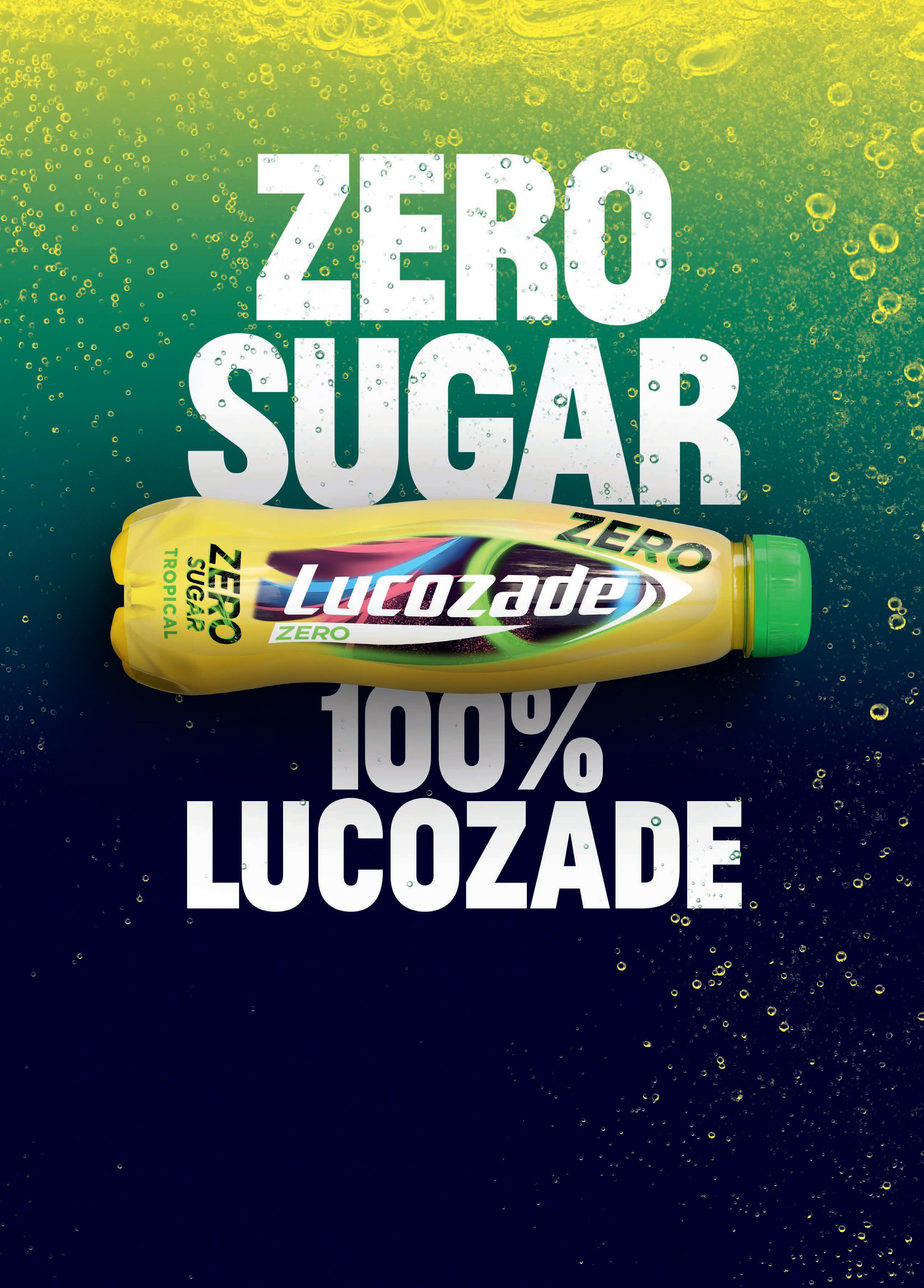
HEALTHY CHOICES

Suppliers need to come up with a marketing plan
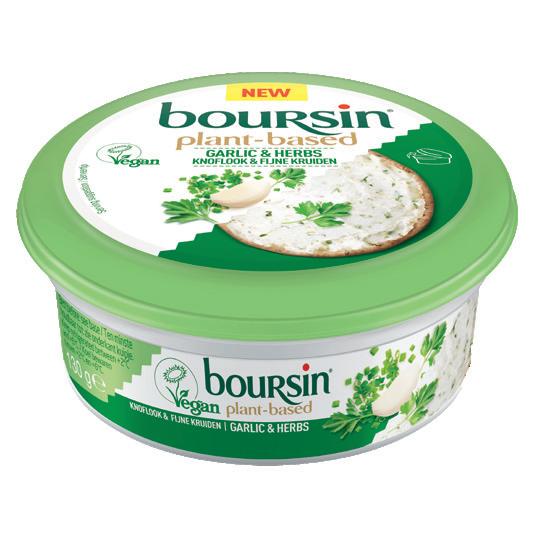
2024, propelled by the new rules. But not all consumers are on board yet.
Children’s snacking repertoires expand rapidly as they get older, and many current ‘low-calorie’ options are surprisingly high in fat, salt and sugar, so expect more developments there.
Low- and no- alcohol sales are growing as well, with nearly one in five households shopping the category, outperforming still and sparkling wine.
Low- and noalcohol wine ranges provide a great differentiator for retailers to position their store as the leading local no-and-low alcohol specialist.
Eighteen-to-24-year-olds are the biggest cohort turning away from alcohol; Modi confirms younger people are buying Heineken 0.0 and other no-alcohol beer most of all in his store.
Plant-based was a growing trend before the pandemic focused people’s minds on healthier living. Four Veganuaries later, consumer appetites for plant-based eating are at an all-time high. Almost two-and-a-half-million households now have a vegan or vegetarian household member, while others are taking conscious steps to reduce dairy consumption This is driving lactose-free spreads’ current annual growth of 71%, and lighter everyday cheese products are being bought by more than four in 10 households.
People with food intolerances were of course the original market for ‘free-from’ products, but with almost three-quarters of adults seeking healthier lifestyles, the quest for better digestive health is bringing more people into the market and driving sales of yoghurt, milk alternatives and protein-enriched kefir drinks. It’s also affecting soft drinks, too, with manufacturers bringing out vitamin- and mineral-enriched ranges to support digestion and metabolism. How far retailers will go with including these products in their offering is down to fixture size and ranging. To see rapid results, creating dedicated ‘healthy lifestyle’ sections isn’t the answer.
“It takes customers 10 or 11 days to clock promotions, so noticing a new category might take a quarter,” says Puntambekar.
To really help shoppers adopt healthier lifestyles, retailers need to get on trend with consumer diversity in their stores and include these products in their respective categories. l
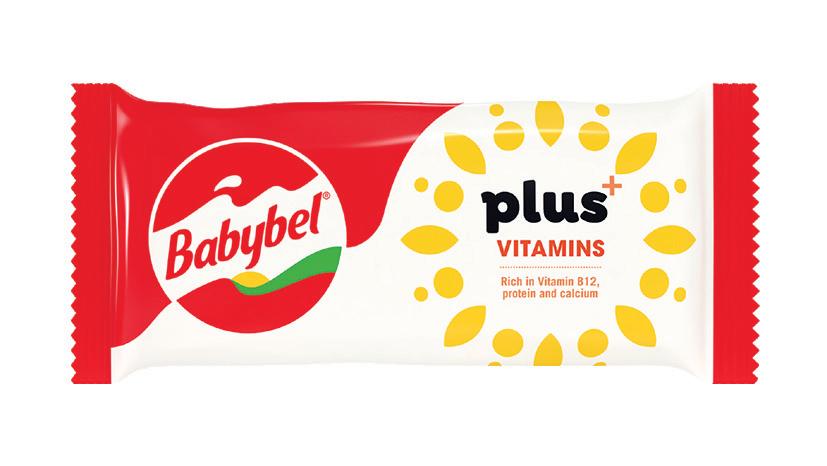
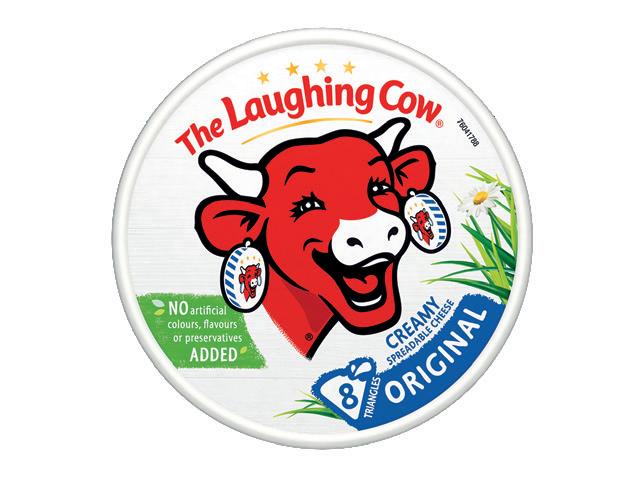
WHAT TO STOCK


CEREAL DRINKS Weetabix On The Go Plus Immune Support is high in fibre, with 19g of protein per bottle and fortified with Vitamin B1, B2, D, Niacin, Folic acid and iron.

CEREAL BARS General Mills’ Nature Valley offers added benefits through Nature Valley Crunchy, made with 100% wholegrain oats; Nature Valley Protein, high in protein and fibre; and Fibre One 90-calorie brownies and squares, now with 30% less sugar.
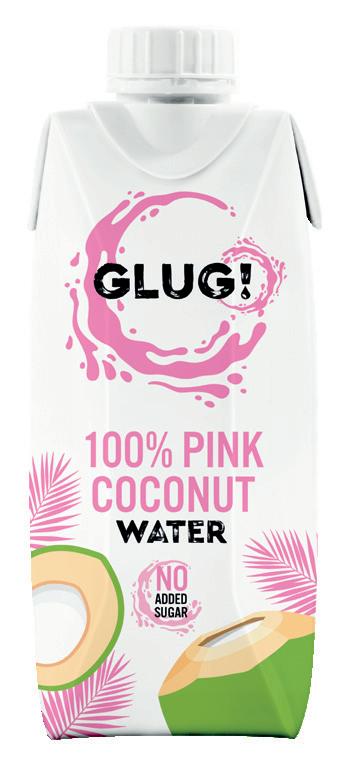
CHEESE SNACKS Bel UK’s Babybel Plus Vitamins and Babybel Plus Live Cultures are blended with active ferments or vitamins. Babybel Plant-Based is a Vegan Society-approved blend of coconut oil and starch, alongside Bel’s Nurishh cheese alternatives. At 36 calories per triangle, Bel’s The Laughing Cow adheres to Public Health England’s recommended 100 calorie snacking cap, All Mondelez’s Philadelphia Snacks are under 100 calories per portion, as are many of their Dairylea snacking products.
CONFECTIONERY Available in Smooth Chocolate and Smooth Chocolate with Salted Caramel pieces, Mondelez’s new Cadbury Plant Bar replaces milk with almond paste and rice extract. Their new Sour Patch Kids Watermelon is gelatine-free and certified vegan, as is their Maynards Bassetts Fizzy Fish.
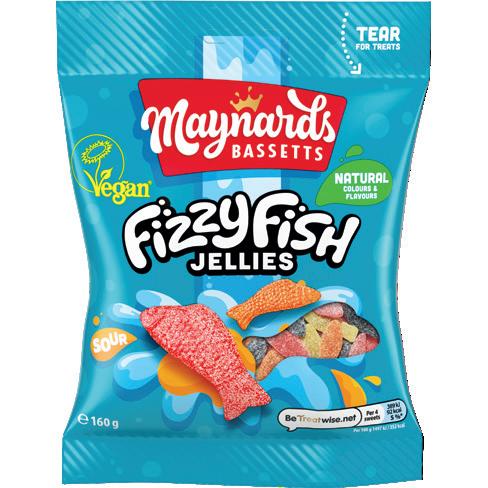
COOKING OIL Saputo Dairy UK’s Frylight offers a healthier alternative to traditional cooking oils and marinades, at 1 calorie per spray - 95% less fat and over 100 fewer calories than a tablespoon of oil.

CRISPS AND SNACKS Seabrooks’ ‘Loaded’ baked maize Fries are glutenfree and suitable for vegetarians. Their non-HFSS Peppa Pig Cheesy Lentil Puffs are baked, vegan and vegetarian friendly and 82 calories per bag. Seabrooks’ Harvest Snaps vegetable and pulsebased snacks are also baked, under 100 calories per portion, vegan and gluten-free.
LOW AND NO Eisberg’s alcohol-free wines include Eisberg Alcohol Free Sparkling Blanc and Sparkling Rosé.
SOFT DRINKS Fentimans’ new ‘Good & Fruity’ still range has 35% fruit juice, and calcium, zinc and vitamin B6 to support digestion and metabolism.




